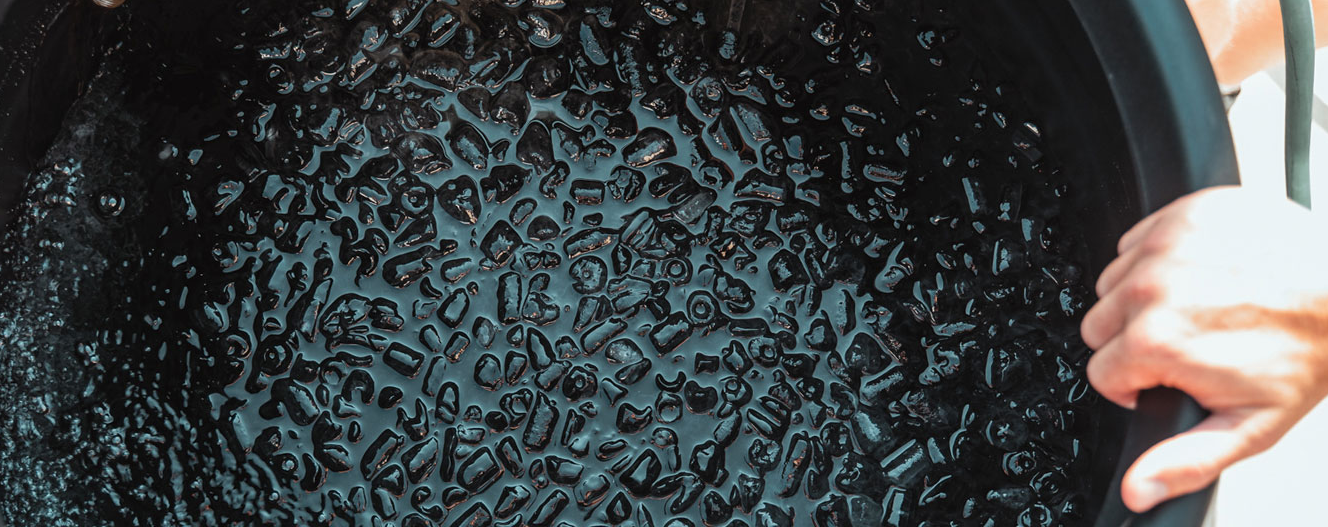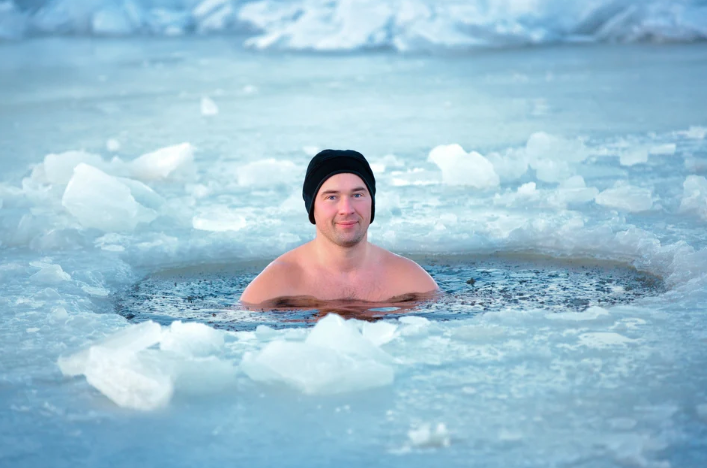This Article is Approved By » Esther Howard (Nutritionist) & Dr. Jane Cooper (Expert Dietitian)
Feeling the invigorating bite of cold water, whether through a refreshing dip in the ocean or a bracing cold shower, isn’t just a wake-up call for your senses. It might also prompt your body to produce a secret weapon: complex shock proteins.
But are cold shock proteins good for you, and what benefits do they offer? Let’s dive into the science and unlock the potential of nature’s chill factor.
What are Cold Shock Proteins?
Imagine your body as a finely tuned orchestra. When exposed to sudden cold, a specific set of proteins, aptly named cold shock proteins (CSPs), spring into action.
These proteins act like conductors, orchestrating cellular responses to adapt to the temperature shift. They do this by:
- Protecting cell membranes: CSPs stabilize cell membranes, preventing them from stiffening and becoming dysfunctional in cold environments.
- Promoting gene expression: They activate specific genes that aid in stress resistance and cellular repair.
- Helping with protein folding: CSPs ensure proteins fold correctly under stress, preventing malfunction and potential damage.

While primarily found in bacteria, researchers have also discovered numerous CSPs in humans. These proteins are crucial in various biological processes, hinting at their potential health benefits.
Are Cold Shock Proteins Good for You?
Yes, Cold Shock Proteins (CSPs) are generally considered beneficial for human health. They are stress proteins activated by cold exposure and have been reported in various organisms, including humans. Here are some of the main CSPs and their potential benefits:
- YB-1 (Y-box binding protein): This CSP promotes wound healing, helps the body form scar tissue, and plays a role in the immune response by helping draw immune cells to sites of inflammation.
- Lin28A/B: These CSPs may help regulate glucose metabolism and support wound healing and recovery.
- RBM3 (RNA-binding motif protein 3): This CSP may have neuroprotective effects, meaning it might help prevent damage to the brain. It also helps the body maintain muscle mass during periods of disuse.
- CIRP (Cold-inducible RNA-binding protein): This CSP can decrease inflammation, promote wound healing, protect muscle mass during periods of disuse, and may play a role in regulating the circadian rhythm.
In addition to these specific proteins, CSPs, in general, help stabilize cell membranes, prevent protein denaturation, and promote the repair of damaged DNA.
They also play a crucial role in regulating inflammation and immune response. Research has shown that exposure to colder temperatures can positively affect overall health and well-being by activating cold shock protein pathways.
However, it’s important to note that while the benefits of CSPs are promising, more research is needed to understand their effects and potential applications in human health fully.
Always consult a healthcare professional before significantly changing your lifestyle or health regimen.
5 Potential Benefits of Cold Shock Proteins
The research on CSPs is still unfolding, but several exciting possibilities are emerging:
- Enhanced Muscle Recovery: Studies suggest cold shock induced by cold water immersion might trigger CSP production, leading to faster muscle recovery after exercise. This could be due to reduced inflammation and improved protein synthesis.
- Boosted Immunity: Some CSPs seem to play a role in immune regulation, potentially enhancing immune response and potentially aiding in fighting infections.
- Improved Mental Well-being: Cold exposure and the subsequent CSP production might be linked to positive mood changes and reduced stress levels. However, more research is needed to confirm this connection.
- Neuroprotective Effects: Emerging evidence suggests CSPs might offer neuroprotective benefits, potentially aiding in neurodegenerative diseases like Alzheimer’s. However, this area requires further exploration.
- Weight Management: Some studies hint at a link between CSPs and metabolic regulation, suggesting they might play a role in weight management. However, this area is still in its early stages of research.

Are There Any Drawbacks?
While CSPs offer promising health benefits, it’s important to acknowledge potential drawbacks:
- Limited Research: Most research on CSPs is still in its early stages, and more studies are needed to confirm their long-term effects and optimal application methods.
- Individual Variability: The individual response to cold exposure and CSP production can vary significantly. What works for one person might not be effective for another.
- Potential Risks: Cold exposure, especially in extreme forms like ice baths, can be risky for people with certain health conditions. It’s crucial to consult your doctor before engaging in any cold therapy practices.

How to Leverage the Power of Cold Shock Proteins
Several practices can potentially stimulate CSP production, including:
- Cold water immersion: Taking cold showers, ice baths, or plunging into cold water might activate CSPs. However, start gradually and consult your doctor if you have any health concerns.
- Cryotherapy: This therapeutic technique involves controlled exposure to extremely cold temperatures, potentially triggering CSP production. However, it should only be done under professional supervision.
- Dietary choices: Some studies suggest foods rich in omega-3 fatty acids and antioxidants might indirectly influence CSP activity. Consult a registered dietitian for personalized dietary advice.
Remember, consistency is key. Regularly incorporating these practices into your routine might optimize the potential benefits of cold shock proteins.
Conclusion
Cold shock proteins, once thought to be solely bacterial marvels, are opening doors to exciting possibilities in human health. While research is ongoing, their potential benefits, from enhanced muscle recovery to improved mental well-being, paint a promising picture.
However, approaching cold therapy and CSP activation with caution and seeking professional guidance is crucial. Remember, informed and responsible exploration is the key to unlocking the chill factor.
Resources & References
- https://selectsalt.com/halotherapy/unveiling-the-marvels-of-heat-shock-and-cold-shock-proteins/
- https://www.trainingpeaks.com/blog/how-to-boost-your-recovery-with-contrast-therapy/
- https://icebarrel.com/blog/cold-shock-proteins-what-they-are-and-what-they-do/
- https://biosignaling.biomedcentral.com/articles/10.1186/s12964-018-0274-6
FAQs About Cold Shock Proteins
Are cold shock proteins good for me?
The research is promising but still evolving. Studies suggest CSPs might offer benefits like:
- Faster muscle recovery: Cold water immersion, which triggers CSP production, could aid in post-workout recovery.
- Enhanced immunity: Some CSPs boost immune function, potentially helping fight infections.
- Improved mood: Cold exposure and subsequent CSP production might be linked to better mood and reduced stress.
- Neuroprotective effects: Early research suggests CSPs might protect brain cells, potentially aiding in neurodegenerative diseases.
- Weight management: Some studies hint at a connection between CSPs and metabolism, suggesting a possible role in weight management.
However, more research is needed to confirm these benefits and understand their long-term effects.
Are there any risks associated with cold shock proteins?
While generally safe, it’s crucial to listen to your body. Cold therapy can be uncomfortable or have adverse effects on some individuals. Consulting a healthcare professional before engaging in cold therapy practices like cold showers or ice baths is crucial.
How can I activate cold shock proteins?
Several practices might stimulate CSP production:
- Cold water immersion: Taking cold showers, ice baths, or plunging into cold water can trigger CSPs. Start gradually and consult your doctor if you have any health concerns.
- Cryotherapy: This controlled exposure to extreme cold temperatures activates CSPs but should only be done under professional supervision.
- Dietary choices: Foods rich in omega-3 fatty acids and antioxidants might indirectly influence CSP activity. Consult a registered dietitian for personalized advice.
Can I get cold shock proteins from supplements?
Currently, no commercially available supplements are proven to increase CSP levels directly. Research in this area is ongoing, so stay tuned for future developments.

